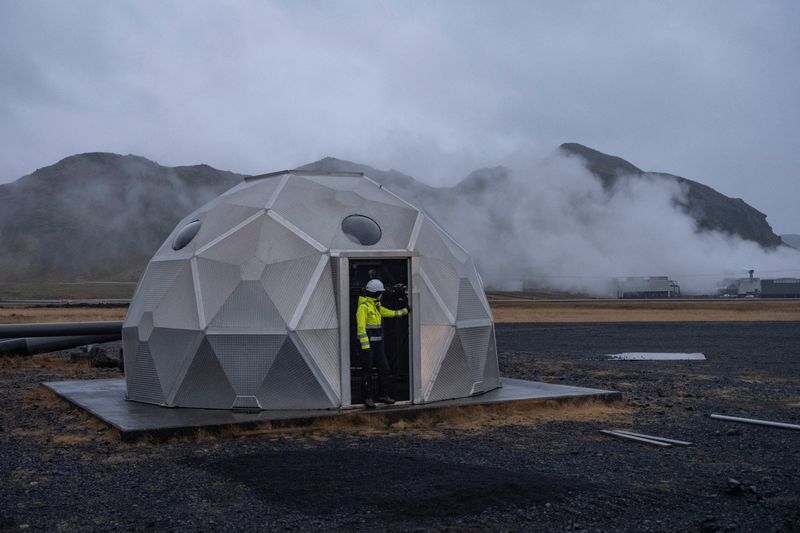Published on Dec 01, 2023 11:04PM ET


By Timothy Gardner
(Reuters) – Governments and investors are pouring billions of dollars into emerging technologies to combat global warming in long-shot bets that entrepreneurship can help lead the way to a climate-friendly world.
As officials from nearly 200 countries seek to forge agreements at the U.N. COP28 climate summit in Dubai this month, they will also be considering deployment of the nascent technologies.
The amount invested worldwide by venture capital and private equity into climate technology startups – in projects ranging from carbon capture and green hydrogen, to food waste reduction and cleaning up heavy industry – totaled $490 billion this year, according to a report by accounting firm PwC.
While that’s down 40% from 2022 as economic uncertainty, stubborn inflation and high interest rates bite, it marks a relatively healthy showing given the investments across all business sectors dropped 50% over the same period, PwC said.
Here are some of the investment trends:
CARBON REMOVAL
The world emits around 37 billion metric tons of planet-warming carbon dioxide from fossil fuel and industry each year. One family of technologies, called carbon capture and storage, would tackle that by trapping those emissions before they reach the atmosphere, and storing them underground or using them to make products.
A big question, though, is whether it can work given the costs and the amount of energy required. The International Energy Agency, the West’s energy watchdog, said in November that the oil and gas industry is relying excessively on carbon capture, and called the approach an implausible “illusion”.
Even so, carbon removal is attracting loads of money.
The United States this year, for example, announced it would grant more than $1 billion to two carbon removal projects, in Texas and Louisiana, that would suck more than 2 million metric tons of carbon emissions per year from the sky using a carbon removal technique called direct air capture.
FUSION
Fusion, can generate massive amounts of zero-emissions power by harnessing the energy produced from pushing atoms together, instead of splitting them apart. But the reaction is hard to produce, and harness any energy it generates to the grid.
Investments in fusion slipped this year, part of the broader trend in declining venture investment. International fusion companies raised about $1.4 billion in mostly private money according to the Fusion Industry Association, down from about $2.83 billion in new investment last year.
On the hopeful side for fusion, the number of companies getting investments rose to 43 from 33,

